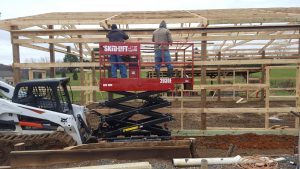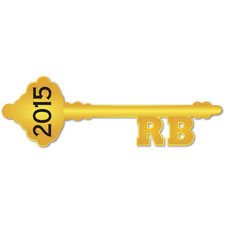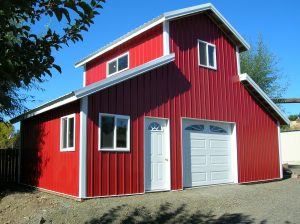When I was a pole building contractor, I always hated “prevailing wage” projects. It wasn’t just all of the obnoxious extra paperwork and record keeping, it was knowing the taxpaying public was being basically fleeced. Prevailing wage caused the pole building labor cost to be two to three times what it would have been, if it would have been a private sector project.
The Davis-Bacon and Related Acts (DBRA) are administered by the Wage and Hour Division. These Acts apply to contractors and subcontractors performing on federally funded or assisted contracts in excess of $2,000 for the construction, alteration, or repair (including painting and decorating) of public buildings or public works.
 The Davis-Bacon Act requires all contractors and subcontractors performing on federal contracts (and contractors or subcontractors performing on federally assisted contracts under the related Acts) in excess of $2,000 pay their laborers not less than the prevailing wage rates and fringe benefits listed in the contract’s Davis-Bacon wage determination for corresponding classes of laborers employed on similar projects in the area. Davis-Bacon labor standards clauses must be included in covered contracts.
The Davis-Bacon Act requires all contractors and subcontractors performing on federal contracts (and contractors or subcontractors performing on federally assisted contracts under the related Acts) in excess of $2,000 pay their laborers not less than the prevailing wage rates and fringe benefits listed in the contract’s Davis-Bacon wage determination for corresponding classes of laborers employed on similar projects in the area. Davis-Bacon labor standards clauses must be included in covered contracts.
Apprentices may be employed at less than predetermined rates if they are in an apprenticeship program registered with the Department of Labor or with a state apprenticeship agency recognized by the Department. Trainees may be employed at less than predetermined rates if they are in a training program certified by the Department.
Contractors and subcontractors on prime contracts in excess of $100,000 are required, pursuant to the Contract Work Hours and Safety Standards Act, to pay employees one and one-half times their basic rates of pay for all hours over 40 worked on covered contract work in a workweek. Covered contractors and subcontractors are also required to pay employees weekly and to submit weekly certified payroll records to the contracting agency.
Across the nation–from the Pacific Northwest to Kansas and Tennessee – legislative bills introduced to repeal the Federal prevailing wage law (a.k.a. Davis-Bacon Act of 1931) are under hot debate. For construction companies, the repeal of prevailing wage regulation is an issue which has become layered with immigration reform laws currently moving through Congress. Originally, the laws were enacted as a mechanism to allow outside workers to enter a state without, as a result, undercutting local companies on labor rates.
Hence, it fits naturally into negotiations for creating a guest worker program for low-wage workers. But the counter argument is the proposal could raise pole building labor rates. Currently, ‘prevailing wage’ laws are only enforced for government-contract work. The deal announced by business and labor, however, would extend the practice into many aspects of the private economy. The biggest impact would likely be in post frame construction, which would see a dramatic increase in pole building labor costs.
This presents a double-edged sword for pole builders. Higher pole building labor costs could be a boon, or on the other hand, a business dampener, just as the industry is beginning to recover from the throes of the Great Recession.








